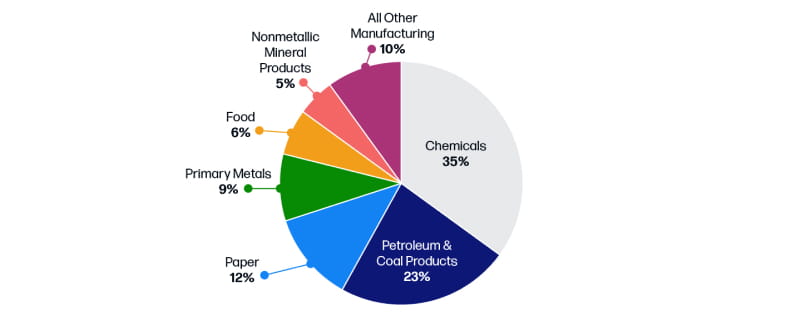
Imagine this scenario. You’re responsible for procurement at a food manufacturing company and you’ve got the inputs covered. From grains to sugar to dairy you’ve budgeted contracts for all the necessary ingredients. You also have hedges in place to protect against wild swings in the markets.
And then disaster strikes. Not because you didn’t include the cost of transportation. You did. You know that product doesn’t sprout wings and fly by itself to outlets. But what you didn’t account for was a major shift in energy prices. Or a shift in price direction that nobody, not even the major banks and newspapers, anticipated.
“Nowadays, you simply can’t ignore how volatile every sector of our economy is,” says Jack Detiveau, Manager of Government Relations and Public Affairs at the American Baking Association (ABA). “This is especially true of the baking industry. We do not enjoy huge margins, we produce a very affordable product, so the surest way to get into serious trouble is to make a lot of assumptions.”
And yet, assumptions about energy costs continue to be made by risk managers. Assumptions that can be particularly painful in the food industry. The baking industry, for example, collectively runs the third largest trucking fleet in the country, making it vulnerable to miscalculations regarding fuel costs.
“Time and again, we’ve seen companies make poor decisions about energy because they didn’t have a solid plan set in place, or they didn’t follow it,” says Dan Conrath, Senior Vice President, Energy/Grains with StoneX Group Financial Inc.’s FCM Division. “Even the best decision-makers are not immune to panic and greed when it comes to energy markets.”
Conrath gives the example of a food manufacturer whose management team relied on market news and outside price forecasts for their energy needs. At the end of the third quarter last year, a number of energy reports were predicting a quantum leap in oil prices from $75 a barrel to $100 a barrel based on two major factors: the re-imposition of US sanctions on Iran and the negative reaction to the murder of a Saudi-American journalist.
“The company actually had a hedge program in place which showed that the current price was at the higher end of the historical price distribution,” Conrath says. “In fact, the program told them to hold off buying diesel for their 2019 needs until better value developed.”
Instead, the CFO, fearing the prospect of $100/barrel oil, executed a hedge for 2019 near $70/barrel. Within 90 days, 2019 crude oil dropped to $49/barrel, costing the company a whopping 40% more for fuel. “This unfortunate story also illustrates another point,” Conrath observes.
“By the time you read a near-term market analysis in the newspaper, it’s usually too late for hedging purposes. You really need to go by your long-term models.”
Energy costs can also be a thief in other ways, such as suckering you into waiting for the lowest price possible.
“A lot of food manufacturing companies are very budget-related and budget-tied,” says Cassie Adolf, Director, Business Development, FCM Division of StoneX Financial Inc.
“And many of those budgets are based on, say, last year’s price minus 5%. But sometimes the market never hits that price.”
Instead of looking for rock-bottom energy prices, manufacturers should be looking to minimize volatility and control costs, according to Adolf.
“Hedging against volatility is the key,” Adolf notes. “Manufacturers can’t expect to capture the lowest possible energy prices, but they can level out the wild swings and have more control over the bottom line. And that bottom line control translates into a competitive edge in pricing.”
Of course, even with a pre-approved hedge plan, emotion can still step in and thwart it.
“Greed and fear will continue to play a role in decision-making, just as they do in the movement of the markets,” Conrath says. “But it’s important to keep in mind that supply and demand are the ultimate controllers of price. In the case of oil, US production was up 20% from a year earlier, and Russia and OPEC had been cheating on their output curtailments. Those factors don’t show up in the headlines, but they do in good hedge models.”
Yet another way energy prices can rob you of your margin is by chipping away at your bottom line through changing conditions from state to state. The cost of running plants, for example, can vary widely around the country, depending on the type of fuel that is available and the nature of local utility regulation.
Manufacturing industry's use of energy
Food manufacturing fifth largest consumer

“In a de-regulated state, manufacturers usually have a choice of suppliers, which provides savings they may not have thoroughly considered,” says Adolf. “Even in a state that is more regulated, there are things they can do that they may not be aware of, such as obtaining manufacturing exemptions and making sure they are paying the correct tariffs.”
As a result of the growing diversity in state regulation, the ABA’s Detiveau notes that his organization, as well as many of their 300 member companies, are enhancing their focus on the state level.
“This is shaping up as a huge component of the success of baking companies,” he adds. And finally, energy costs can pick away at your margin if you haven’t optimized the way you purchase your fuel.
“You can never know where the best price will be,” Adolf points out. “It’s really a matter of working with someone who knows the markets and has an understanding of your needs, your budgets and your risk tolerance.”
As with any margin threat, you can get a handle on energy costs. But unlike other food manufacturing inputs, fuel prices tend to follow their own rules and complexities. Without careful planning and execution, they can undo the best risk management efforts in other areas.
“You can make all the bread you want,” Detiveau notes, “but if you can’t afford to get the product distributed, you’ve got a serious problem.”

